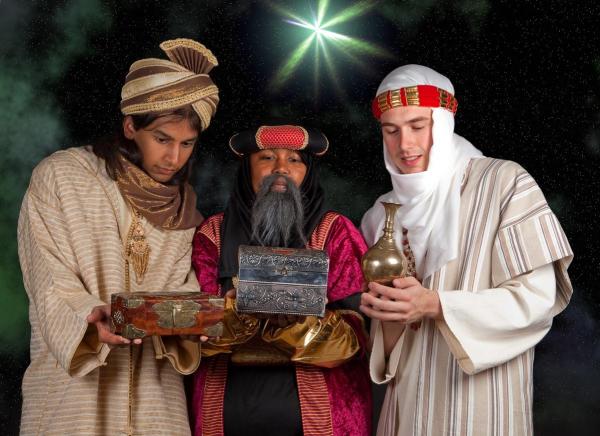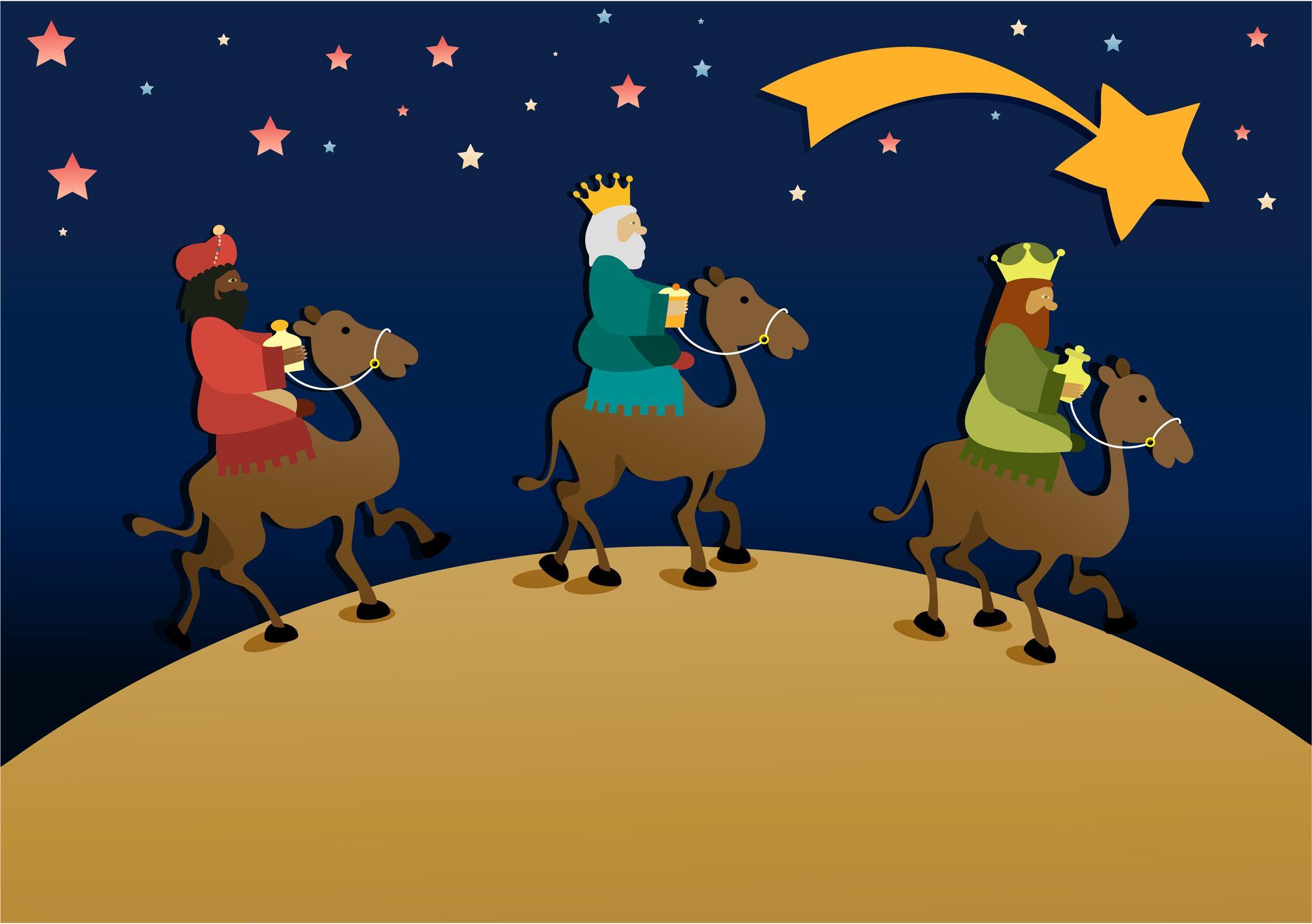Symbolism of the Magi's Gifts - Gold, Frankincense, and Myrrh


In the heart of the Nativity story, the arrival of the Magi adds a layer of mystery and prophetic significance. These wise men, guided by a star, journey bearing precious gifts for the newborn king: gold, frankincense, and myrrh. But these are not mere playthings; each offering whispers of Jesus's destiny and foreshadows his multifaceted role as savior.
In this article from oneHOWTO, we delve into the historical and cultural background surrounding the gifts presented by the Magi.
Who are the magi or three wise man?
The Magi, also known as the Three Wise Men or Three Kings, are figures mentioned in the Bible, specifically in the Gospel of Matthew (Matthew 2:1-12). They are traditionally believed to be visitors from the East who traveled to Bethlehem to witness the birth of Jesus and to present him with gifts of gold, frankincense, and myrrh.
The Bible does not provide detailed information about the identity of the Magi, such as their names or specific backgrounds. The number three is inferred from the three gifts presented, but the actual number of Magi is not mentioned in the biblical text. The notion of them being kings comes from the association of the gifts with wealth and royalty.
Over time, Christian tradition and folklore have elaborated on the story of the Magi. The names traditionally assigned to them are Gaspar (or Caspar), Melchior, and Balthasar. Additionally, various cultures have ascribed different ethnicities and backgrounds to the Magi. Let us take a closer look at each of them:
Gaspar (or Caspar):
Gaspar, or its alternative spelling Caspar, is one of the designated names for one of the Magi. Its origins trace back to ancient Persian, where it signifies "treasurer" or "master of the treasure." This name carries an air of regality, fitting for one who bestowed the gift of gold upon the newborn King.
Melchior:
Melchior, another recognized name among the Magi, has roots in Hebrew and means "king of light" or "light of myrrh." This name aligns well with the symbolic gifts presented to Jesus, particularly myrrh, and reflects a sense of reverence for the divine light embodied in the newborn King.
Balthasar:
Balthasar, the third name associated with the Magi, has diverse linguistic origins, including Babylonian and Persian. Its meanings include "Bel protects the King" or "Baal's prince." This name intertwines elements of protection and princely status, echoing the solemnity with which the Wise Men approached the infant Jesus. According to the biblical account, Balthasar is associated with the gift of incense.
Beyond their names, Christian tradition assigned unique characteristics to each of the three Magi, symbolizing the three stages of adult life, distinct geographical and cultural regions, and occasionally other symbolic representations.
Gold
Throughout history, gold has occupied a central role in various cultures, signifying wealth, prosperity, and luxury. From ancient civilizations to modern societies, its rarity and aesthetic appeal have made it a coveted commodity, used in intricate adornments, currency, and as a marker of social status.
The Bible, on the other hand, frequently highlights gold as a symbol of God's glory and royal grandeur. From the golden Ark of the Covenant to heavenly adornments, biblical passages emphasize gold's sacred role.
The Magi's gift of gold to baby Jesus aligns with biblical prophecies of a divine King. This gesture is a tangible affirmation of Jesus as the ultimate King of Kings, with the Magi acknowledging and honoring his regal authority.

Frankincense
Incense has a rich history intertwined with religious practices. Across ancient civilizations, from Egypt to China, it was burned as an offering to deities and believed to bridge the earthly and divine realms. Its aromatic properties were considered a conduit for prayers and spiritual communication.
The symbolic meaning of incense varies globally. In Hinduism, it represents purification and the dissipation of negative energies. In Buddhism, its smoke signifies the transience of life. The use of incense in Native American rituals symbolizes spiritual cleansing. Understanding these diverse meanings enriches our grasp of its universal spiritual role.
In the Judeo-Christian tradition, incense holds a special place, particularly in the context of worship and prayer. Its use dates back to the Old Testament, where it was an integral part of the rituals in the Tabernacle and, later, the Temple in Jerusalem. The rising smoke symbolized the prayers of the faithful ascending to God.
Incense, as a gift, carries the weight of spiritual significance, signifying recognition and reverence. The Magi, in presenting incense to the infant Jesus, conveyed a message of worship and homage, recognizing the sacredness inherent in the newborn King.
Myrrh
Myrrh, a resin extracted from the Commiphora tree, has a multifaceted history. In antiquity, it was highly prized for its medicinal properties and used in perfumes, salves, and incense. Its aromatic and healing attributes made it a valuable commodity in ancient societies.
Beyond its practical applications, myrrh also carries profound symbolism. Throughout history, it has been associated with suffering, sacrifice, and death because itplayed a role in burial practices.
The Magi's choice of myrrh takes on a deeper significance when considered in the context of Jesus' life and mission. Unpacking the theological layers, the Magi's myrrh becomes a profound statement. It symbolically acknowledges the divine purpose in Jesus' existence, anticipating the redemptive path he would take.
How is the story of the three wise men commemorated around the world?
While the story of the Three Wise Men is celebrated primarily around Christmas and Epiphany (January 6th), specific traditions honoring them exist in various cultures:
- Spain: on January 6th, "Día de los Reyes Magos" (Three Kings Day), is a major holiday with children receiving their main Christmas gifts then. Grand parades with elaborately dressed Magi actors are traditional, followed by family feasts and the sharing of Rosca de Reyes, a cake with a hidden figurine representing the baby Jesus.
- Latin America: similar celebrations occur in many Latin American countries, often with parades, children leaving out shoes for gifts, and Rosca de Reyes traditions. Some countries, like Mexico, hold gift-giving on Christmas Eve instead.
- Eastern Christianity: in Orthodox Christian traditions, Epiphany celebrates the baptism of Jesus, not the visit of the Magi. However, celebrations still include blessings of water and parades or processions in some regions.
- Other Traditions: in some places, like Goa, India, the arrival of the Magi is marked by a grand procession with boys dressed as the Magi. In Ethiopia, a special church service commemorates the visit, and in Armenia, Epiphany involves blessing homes and businesses.
What is the King's cake?
The three King's cake or Rosca de Reyes in Spanish, is a sweet bread or cake traditionally eaten on Three Kings Day (January 6th) in many Spanish-speaking and Latin American countries.
It's typically shaped like a ring, symbolizing a crown, and decorated with candied fruits and nuts. A small figurine, often representing the baby Jesus, is baked inside the cake. Whoever finds the figurine in their slice is said to have good luck and is responsible for hosting a party on February 2nd (Candlemas).
If you want to read similar articles to Symbolism of the Magi's Gifts - Gold, Frankincense, and Myrrh, we recommend you visit our Festivities & Celebrations category.





